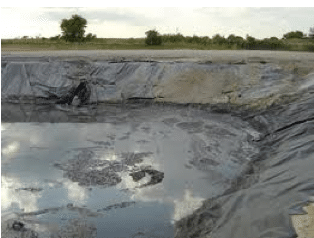 Exxon Mobil, which is making big bets worldwide on hydraulic fracturing for deeply buried natural gas, is also making big bets on its sincere, earnest advertising about clean, safe natural gas. The ads turn me into a crazy person, yelling at the television during halftimes and seventh-inning stretches.
Exxon Mobil, which is making big bets worldwide on hydraulic fracturing for deeply buried natural gas, is also making big bets on its sincere, earnest advertising about clean, safe natural gas. The ads turn me into a crazy person, yelling at the television during halftimes and seventh-inning stretches.
Their claim that they ensure compliance with all "applicable environmental and safety regulations" is my personal turning point, because in the U.S. those regulations barely exist. It's easy to comply with nothing, so Exxon can get away with telling us that fracturing bedrock thousands of feet deep, drilling through the aquifers that supply our drinking water, using scarce water supplies spiked with an unidentified slew of toxic chemicals, is as safe as braiding a a daisy chain.
Some other countries, however, are starting to act on their doubts.
France has outlawed this drilling, known as "fracking," until doubts about what it does to water supplies and how its waste poisons the land are dealt with. Britain's Advertising Standards Authority banned one of the Exxon ads, stating that its claim on liquefied natural gas as one of the world's cleanest fuels is misleading.
In the U.S., enviro and consumer groups grumble, and SolarDave has made an on-target spoof of the Exxon ads, but our lawmakers and regulators are still mostly twiddling their thumbs. There isn't a federal requirement that drillers tell us what chemicals they're squirting into the ground, or a law to prevent dumping their wastewater into the rivers from which we drink.
After a slew of investigative reporting (special kudos to ProPublica) on the health and environmental fallout from fracking, government is starting to ask questions. This week, Sen. Jeff Bingaman of New Mexico led off a Senate Energy and Commerce hearing on fracking, ticking off the water issues, land poisoning and air pollution issues, and adding on fracking's release of highly potent climate-change gases, particularly methane. But a show of sympathy is a long, long way from effective regulation.
 Pennsylvania, where some of the most egregious fracking complaints (see waste pit photo, right) are centered, and four other states are now requiring some disclosure of drilling chemicals, but not regulating them.
Pennsylvania, where some of the most egregious fracking complaints (see waste pit photo, right) are centered, and four other states are now requiring some disclosure of drilling chemicals, but not regulating them.
California is even more pathetic. The state agency that is supposed to regulate natural gas says it doesn't know how many fracking operations the state has, if any, or where they're located (even though industry sources identify at least seven locations around Bakersfield). A bill to require identification of the wells and the chemicals they're using failed to pass the Legislature this year. The reason, as stated by one of the negotiators on the bill a few weeks before it died, was that the oil and gas industry wasn't completely satisfied with it:
[T]he bill's ultimate chance of passage… could hinge on getting the state's oil and gas producers completely on board to back the legislation, but as of yet, the bill's sponsors still have not come to a complete agreement with the … industry on several issues.
So it boils down to this: In the U.S., what the oil industry wants too often trumps the needs of citizens and the health of the environment. it's never been more clear than with fracking.






